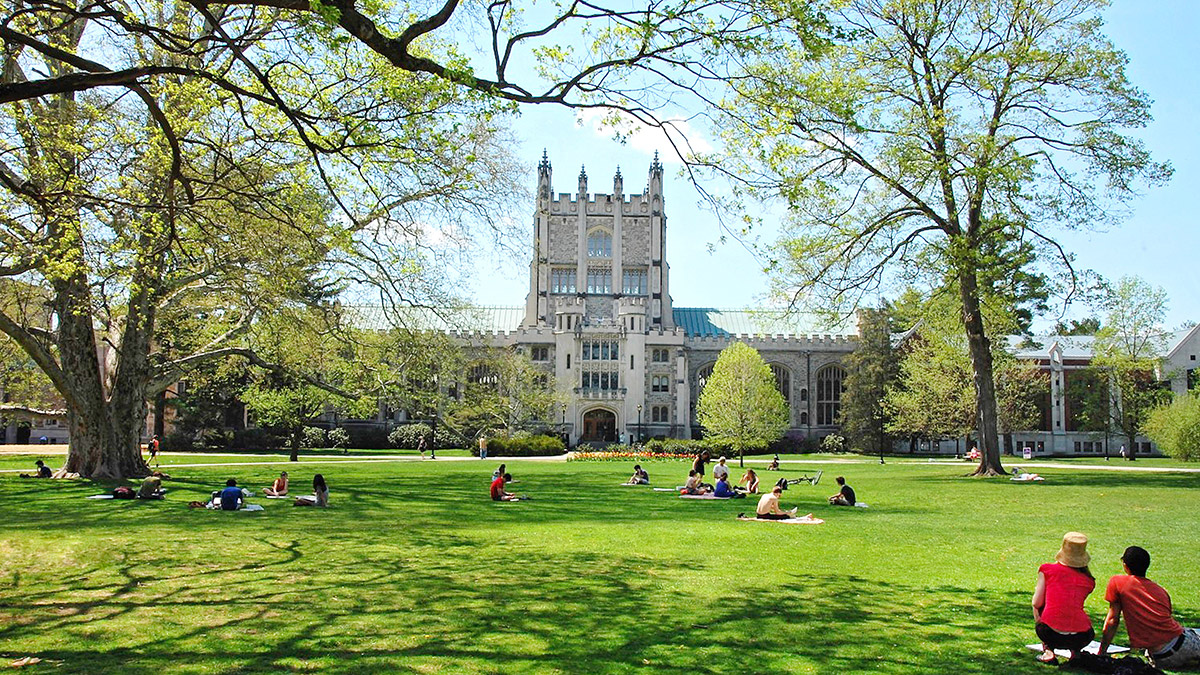Fostering an Inclusive and Affirming Community
Fostering an Inclusive and Affirming Community
Vassar College is announcing a $1.6 million, four-year initiative to advance the college’s mission as a more inclusive and affirming learning community for its highly diverse student body. This program is supported in part by an $800,000 grant from the Andrew W. Mellon Foundation.

The program, “Engaged Pluralism: Belonging and Thriving at Vassar College,” will focus on enhancing equity and student success through climate assessment and infrastructural realignment; campus-wide capacity-building; curricular and pedagogical innovation; and strengthening programs that foster a sense of belonging within the institution and that empower students to thrive.
As a recognized leader in higher education access in the last decade, Vassar’s community increasingly reflects the diversity of the United States and the world. The college’s generous financial aid policy, offering of no-loan financial aid packages for students from low-income families, veterans initiative with the Posse Foundation, and collaborations with QuestBridge and the KIPP Partnership, as well as other outreach efforts, have generated a student body that is distinctive among leading liberal arts colleges in its diversity and backgrounds. In the entering class of 2016 one out of three domestic students identified as a person of color. Since 2006, students eligible for federal Pell grants—nearly all from families earning less than $40K per year—have nearly tripled as part of the student body. Since 2013, the population of military veterans in the student body has increased from almost none to between thirty and forty, spread across all four class years.
“Diversity at Vassar has certainly enriched the educational experience of all of our students, and we have developed a variety of new programs to support student success. As a result, graduation rates across different demographics are approximately the same,” says interim President Jonathan Chenette. “Nonetheless, not all of our students are similarly positioned to thrive in their Vassar educations and in their post-Vassar lives, take full advantage of the resources available to them at Vassar, or feel a similar sense of belonging. Through this initiative we aim to understand more fully what it means to belong to and thrive in a diverse community, which aspects of our living and learning environment most contribute to student success, and how we can develop and coordinate programs and support systems that enable all of our students to experience a sense of belonging and that provide them with the opportunity to thrive.”
“Engaged Pluralism,” will be in place for nine semesters, beginning in fall 2017 under the direction of principal investigator Candice M. Lowe-Swift, Associate Professor of Anthropology. The initiative will focus on the following areas:
- investigate more fully the various learning styles of our students and assess and enhance those programs and services that attend to student needs
- encourage curricular innovations that integrate high-impact educational practices and expand opportunities for learning outside the conventional classroom that help all students to thrive
- build the capacity of students, faculty, and administrators to contribute more actively to shaping an inclusive residential living and learning community, harness the power of inclusive learning experiences, learn to engage in productive and constructive inter- group dialogue, and navigate and unlearn biases that undermine inclusivity, belonging, and the promise of a Vassar education.
“Our ultimate aim is to foster a living and learning community that is equitable, and that reflects and expresses the economic, racial/ethnic, sociocultural, religious, and intellectual diversity and capacity of the wider world,” explains Lowe-Swift. “We want to provide an opportunity for all members of the community to work together, across and through differences. Such a community better prepares students to achieve their goals in an increasingly diverse, interconnected, and globalized world.”